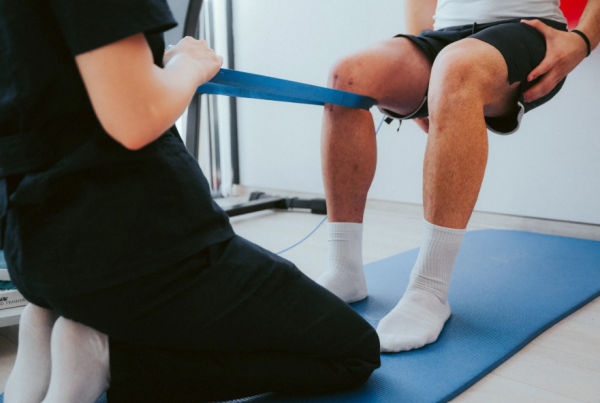Can you imagine having so much stress in your workplace that you chose to resign in order to save your own mental health?
This was the case for Cathy (name changed for privacy) who experienced increasing symptoms of anxiety and depression, alongside numerous physical ailments, as a result of her stress at work. It had developed as a combination of multiple factors – being forced to take on the additional workload of a colleague (on top of her standard workload), uncomfortable workplace tensions, and feeling isolated and unsupported in her role.
When the workplace service delivery started slipping, Cathy was the one who had to front up to frustrated customers. Over the course of many months, the stress built up to the point where Cathy knew she needed to step back from her role to prioritise her health.
At the time of her resignation, she was displaying many symptoms consistent with depression – loss of interest in usually enjoyable activities, irritability, loss of appetite, disturbed sleep and ruminating thoughts of failure and guilt.
The physical symptoms that she experienced were also causing a lot of anxiety about her health. Cathy experienced chest pain, nausea, numbness in her hands, tingling legs and body aches. At times, this escalated into panic attacks. She felt helpless and wondered why she was unable to cope. It felt to Cathy that things might never get better.
Fast Forward 6 Months…
Carmyn Barnes, our amazing exercise physiologist in Christchurch NZ, received a referral for Cathy on the recommendation of the consultant psychiatrist who had assessed her.
Cathy, being the hardworking woman she was, had recently accepted a full-time role in a new company and was due to start that week. While this was definitely a step in the right direction, the psychiatrist knew that there was still work to be done to ensure that Cathy’s return to full-time work would be a sustainable one. And after reviewing Cathy herself, Carmyn agreed.
Cathy had identified a few challenges around managing her energy levels, reporting lower energy at the end of the week, a lack of routine and poor motivation for daily tasks. To ensure sustainability, Cathy needed to be able to complete her 40-hour week, while still having enough energy reserves to support the kids in their extra-curricular activities and keep the household running. Finding the time for her own self-care activities seemed a foreign concept!
Carmyn thought, ‘‘what better tool to use for managing energy levels than heart rate variability?”
Carmyn and Cathy spent 10 sessions together, focusing on pacing, monitoring energy expenditure, building routine, and identifying boom and bust patterns. Carmyn taught her how to interpret her own HRV data, and how to use this information to guide her activities. And of course, they worked through some exercises to optimise her physical health and provide those mood-boosting effects.
The Outcome?
10 sessions later and Cathy reported feeling the best that she had in a long time. Thanks to the objective guidance provided by heart rate variability, Cathy was able to identify when she had the capacity to do more, but most importantly, when it was time to pull back and prioritise time for rest.
While maintaining her new full-time role, she had established a new routine of regular exercise, was sleeping better and longer, and feeling calmer as a result. Her ability to better pace her energy levels meant that she was more motivated, productive, and still finding the time in her schedule to fit in additional enjoyable activities! As a result, Cathy was able to regain control over her stress levels, building her resilience to deal with scenarios that would once have been cause for panic.
Cathy is not alone in her experience of a mental health decline as a result of work. Many people are busy, stressed, and stretched too thin. Let her story spread the message of the value of routine, effective energy management, and self-care strategies!
Author: Yolanda van Vugt Clinical Exercise Physiologist and Content Creator at Specialised
#exercisephysiology #exerciserehab #rehabilitation #lifeinsurance #incomeprotection #ctp #workcover #mobile #mobileexercisephysiology #fatigue #mentalhealth #cancer #musculoskeletal #injury #pain #physio #physiotherapy #Sydney #Brisbane #Melbourne #Adelaide #Auckland #Waikato #BayofPlenty #Wellington #Otago #Christchurch



